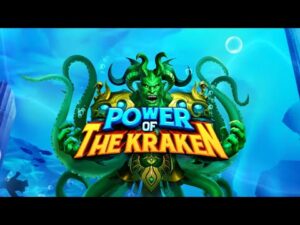The Power of the Kraken: Unveiling the Myth and Might of the Legendary Sea Monster
The Kraken, a colossal sea monster of ancient lore, has captivated human imagination for centuries. Known for its enormous tentacles and ability to drag entire ships into the ocean’s depths, the Kraken embodies the awe-inspiring and terrifying power of the sea. This article explores the origins of the Kraken legend, its cultural significance, and its portrayal in modern media, revealing why this mythical beast continues to fascinate us. Also Download Happy Teen Patti

Origins of the Kraken Legend
The Kraken’s legend originates from Scandinavian folklore and Norse mythology. Described as a giant, tentacled sea creature, the Kraken was said to dwell off the coasts of Norway and Greenland. Early references can be found in 13th-century Icelandic sagas and the accounts of sailors and fishermen who claimed to have encountered the beast.
Natural historians like Carl Linnaeus even included the Kraken in the first edition of his Systema Naturae in 1735, categorizing it as a cephalopod. This blend of myth and pseudo-science gave the Kraken a place in both cultural and scientific discussions, enhancing its mystique.
The Kraken in Literature and Media
The Kraken has been a prominent figure in literature, film, and other media, often symbolizing the unknown and dangerous depths of the ocean.
Literature:
- “The Kraken” by Alfred Lord Tennyson: Tennyson’s 1830 poem describes the Kraken lying dormant in the ocean’s depths, waiting to rise at the end of the world.
- “Twenty Thousand Leagues Under the Sea” by Jules Verne: Verne’s 1870 novel features a giant squid attacking Captain Nemo’s submarine, the Nautilus, often associated with the Kraken myth.
Film and Television:
- “Pirates of the Caribbean: Dead Man’s Chest”: The Kraken is a major antagonist, summoned by Davy Jones to destroy ships and capture souls.
- “Clash of the Titans” (1981 and 2010): The Kraken is depicted as a monstrous titan, famously introduced with the line, “Release the Kraken!”
Video Games:
- “Sea of Thieves”: Players can encounter the Kraken, facing its tentacles and powerful attacks.
- “Assassin’s Creed IV: Black Flag”: Hints and easter eggs related to the Kraken add to the game’s maritime lore.
The Kraken’s Enduring Appeal
The Kraken remains a potent symbol and cultural icon for several reasons:
1. The Mystery of the Ocean: The ocean is one of Earth’s last unexplored frontiers. The Kraken symbolizes the unknown and the fearsome creatures that might inhabit its depths.
2. Power of Nature: Representing nature’s uncontrollable power, the Kraken reminds us of the sea’s potential for destruction and our vulnerability against its might.
3. Dramatic Storytelling: The Kraken’s sheer size and power make it an ideal antagonist in stories, creating high-stakes drama and tension in narrative arcs.
4. Cultural Icon: The Kraken has permeated popular culture, inspiring memes, artwork, and even the names of products like Kraken rum and the cryptocurrency exchange Kraken.
The Scientific Angle
While the mythical Kraken is a product of human imagination, it likely finds some roots in real-life giant squids (genus Architeuthis), which can reach lengths of up to 43 feet. These elusive creatures were rarely seen alive, leading to speculation and exaggeration among sailors. The scientific community’s gradual understanding of giant squids has demystified some aspects of the Kraken myth but has not diminished its legendary status.
Conclusion
The Kraken, with its deep roots in ancient mythology and enduring presence in modern culture, continues to embody the awe-inspiring power and mystery of the ocean. Whether portrayed as a monstrous adversary in films and games or as a poetic symbol in literature, the Kraken fascinates and terrifies, reminding us of the vast and unexplored world beneath the waves. Its legacy as one of the most formidable sea monsters ever imagined ensures that the Kraken will remain a powerful figure in human storytelling for generations to come. Also Download Teen Patti Online






















Sunfj